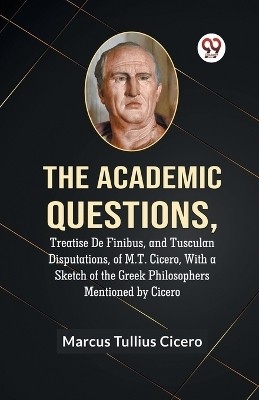
The Academic Questions, Treatise De Finibus, And Tusculan Disputations, Of M.T. Cicero, With A Sketch Of The Greek Philosophers Mentioned By Cicero(English, Paperback, Tullius Cicero Marcus)
Quick Overview
Rs.525 on FlipkartBuy
Product Price Comparison
